Giving something to someone
to give something to someone
These words mean to provide someone with something.
The most commonly used word for this is give.
Give me that dirty plate.
Your teacher will give you more information.
The opposite of give is receive.
I received some beautiful gifts for my birthday.
For more opposites of give, see the article at get.
Very common alternatives to give are verbs such as offer, provide, and supply. These verbs are often used to describe giving someone something that they need or have specifically asked for.
Your doctor should be able to offer advice.
This booklet provides useful information about local services.
The lake supplies the whole town with water.
The verb donate is used when someone gives money or goods to an organization that needs help. You can also donate blood or a part of your body to help someone who is sick or injured.
Four hundred dollars has been donated to the school book fund.
He urged people to donate blood for the victims.
If you give something away, you give it to someone without asking for payment.
I've just given all my books away.
If you gift something, especially money, you give it to someone in an official or formal way.
The company has gifted $5 million to the University.
If one of many people gives something, especially money, in order to provide or achieve something, the verb contribute is used. Chip in is more informal, and is used specfically for contributing money.
I contributed $20 towards Jamie's present.
Everyone chipped in $50 to pay for a new computer.
If you put something from your hand into someone else's hand, you can use verbs such as pass and hand.
He passed a note to her during the meeting.
Could you hand me that book, please?
The phrasal verbs hand in and, in UK English, give in are sometimes used when you give something to someone in a position of authority. Submit is a more formal word for this that is used in both UK and US English.
Have you handed in your history essay yet?
UK You may have to give in your passport at the hotel reception.
The deadline for submitting applications is May 17.
The phrasal verb pass on is often used when you ask someone to give something to someone else.
Could you pass this on to Laura when you've finished reading it?
If something like a prize or an amount of money is given in an official way, you can use verbs like award or present. Confer and bestow are more formal words for this.
He was awarded the Nobel Prize for Physics.
University degrees were conferred on approximately 3,500 graduates.
This was a unique honor bestowed on very few scholars.
Grant is used to talk about giving something in an official way. It is used when talking about giving permission or fulfilling a request.
The government granted the town permission to open a casino.
Lend, and in formal language, afford, are used to talk about giving a particular quality to something.
Recent research lends credibility to that belief.
They should be afforded the same protection as other passengers.
Related articles
someone who gives something
something that you give
general words meaning to give - synonyms and related words
give
verb
to put something in someone’s hand, or to pass something to someone
present
verb
to give something to someone formally or officially
hand
verb
to give something to someone by holding it in your hand and offering it to them
help
verb
to give someone something, especially food or drink
yield
verb
to give something to someone else
contribute
verb
to give money, goods, or your time and effort in order to achieve something, especially when other people are also helping
distribute
verb
to give something such as food, clothes, or money to a group of people, especially so that each person gets an equal share
hand over
phrasal verb
to give something to someone by holding it in your hand and offering it to them
part with
phrasal verb
to give something to someone although you would prefer to keep it
lavish
verb
to give someone a lot of something, for example money, love, or attention
More synonyms
allocate
verb
to officially give something to someone, or to decide that something can be used for a specific purpose
allot
verb
to give someone part of an amount of something that is available, or to decide that something will be used for a specific purpose
award
verb
to officially give someone a contract
be lavish with something
phrase
to give something generously
bestow
verb
formal to give valuable property or an important right or honor to someone
cede
verb
formal to allow someone to take something such as power or land away from you
commend
verb
formal an old word meaning “to give something to someone to take care of”
commit
verb
formal to give someone or something to someone else to take care of
concede
verb
to give something that you own or control to someone so that they own or control it
confer
verb
formal to give something such as authority, a legal right, or an honor to someone
deliver up
phrasal verb
to give something to someone officially and formally
dish out
phrasal verb
informal to give things to a number of people
dole out
phrasal verb
to give something, such as food or money, to a particular group of people or to every person in a group
drip-feed
verb
to give something to someone slowly, little by little
favor with
phrasal verb
to give someone something such as a look, smile, or answer to a question
fob off
phrasal verb
to give someone something that is not what they want or need
force on/upon
phrasal verb
to make someone accept something that they do not want
free
verb
to make someone or something available to be used for something else
gift
verb
to give something to someone
give
verb
to let someone have or keep something as a present
give
verb
to make someone the owner of something that you owned
give away
phrasal verb
to provide someone with something that you no longer want or need
give away
phrasal verb
if a company gives something away, they let you have it without paying for it
give back
phrasal verb
to give someone something that they owned or had before
give out
phrasal verb
to give something to several people
give over to
phrasal verb
if you give something over to someone, it becomes theirs
go to
phrasal verb
to be given to someone or something
hand back
phrasal verb
to give something back to someone
hand down
phrasal verb
to give clothes, toys, etc. to a younger child when an older child no longer needs them
to a younger child when an older child no longer needs them
hand in
phrasal verb
to give something to a person in authority
hand on
phrasal verb
to give someone something that was given to you
hand out
phrasal verb
to give things to different people in a group
heap
verb
if you heap praise, blame, criticism, etc. on someone, you give them a great deal of praise, blame, criticism, etc.
inundate
verb
to send or provide much more of something than someone can easily deal with
issue
verb
if you issue someone something such as equipment, you give it to them, usually officially
keep
verb
used when you allow someone else to have something
ladle out
phrasal verb
to give large amounts of money, goods, or information to someone without thinking carefully what it will be used for
leave
verb
to give something to someone before you go away
lodge
verb
to give something valuable to someone so that they can keep it safe
make over
phrasal verb
to officially make someone else the owner of something
offer
verb
to give someone something that you think they need or deserve
pass
verb
to put something into someone’s hand or into a position where they can take it
pass around
phrasal verb
to give something to one person in a group, who gives it to someone else, who then gives it to someone else, etc.
pass out
phrasal verb
to give something to each member of a group
ply with
phrasal verb
to keep giving someone a lot of presents, food, or drinks
present
verb
to give someone a bill that they must pay
press on
phrasal verb
to try in a determined way to give someone something, especially something that they do not really want
produce
verb
to show or offer something so that it can be examined or used by someone else
regift
verb
to give a present that you do not want to someone else
remember
verb
to give someone money or a present
re-present
verb
to give or send something for a second time, usually after it was not accepted the first time
restore
verb
to give something that has been lost, taken, or stolen back to the person who it belongs to
reward
verb
to give someone something as a reward, for example praise, success, or money
settle on
phrasal verb
Britishformal to give someone money or property in a legal and official way
shower
verb
to give a large number of things or a large amount of something to someone
submit
verb
to formally give something to someone so that they can make a decision about it
surrender
verb
formal to give a document to someone in authority who does not give it back to you
tender
verb
formal to formally offer something, usually in writing
transfer
verb
to officially arrange for someone else to become the owner of something
turn in
phrasal verb
to return something to the person it belongs to, especially something that was lost or was lent to you
turn in
phrasal verb
to give something to the person who has officially asked for it or who is in charge
turn over
phrasal verb
to give someone or something to someone in authority, especially because they have ordered you to
turn over
phrasal verb
to allow something to be used for a particular purpose or by a particular person
vouchsafe
verb
formal to give, promise, or offer something to someone who you trust
English version of thesaurus of general words meaning to give
Lesson 41: Giving: 주다, ~아/어 주다
Vocabulary
Click on a Russian word to see explanations of words and examples with them. You may not understand the grammar at this stage, some examples contain grammatical constructions from subsequent lessons. Study these sentences to get a feel for how the words themselves are used.
You may not understand the grammar at this stage, some examples contain grammatical constructions from subsequent lessons. Study these sentences to get a feel for how the words themselves are used.
Nouns:
동료 = colleague
Pronounced like "동뇨".
As commonly used:
동료애 = good, sincere relationship between colleagues
회사 동료 동료 = colleague at work
직장 동료 = colleague at work
Examples:
동료 그 일 을 저 설명 해 줬어 요 요 요 요 요 요 요 요 요 요 요 요 요 요 요 요 요 요 회사원 이 을 해서 동료들 를 를 를 를 를 를 를 를 를 를 를 인기 인기 인기 인기 인기 인기 인기 인기 인기 인기 인기 인기 인기 인기 인기 인기 인기 인기 인기 인기 인기 인기 인기 인기 인기 인기 인기 인기 인기 인기 인기 인기 인기 인기 인기 인기 인기 인기 인기 인기 인기 인기 인기 인기 " 얻었어 요
= this employee received a promotion and became popular with colleagues
저 는 직장 동료들 과 이 있어서 집 늦게 들어갔어 요 요 요
= I had a dinner with colleagues, so I came home late
사거리 = = junction
Note: 사거리 is a junction where 4 roads diverge (that is, 2 streets intersect). There is also "삼거리" - a crossroads where 3 roads diverge.
Common usage:
It is customary to prefix the word "사거리" with the name of the area, thus describing a major intersection in the area.
Examples:
우리 사거리 에서 왼쪽 으로 돌았어 요 요 요 = we turned left at the intersection of
이 를 지나면 고속 가 시작 돼 요 요 = if this intersection will start, the highway
9000 전철역 사거리 에 있는 에 항상 사람 사람 사람 사람 사람 사람 사람 사람 사람 사람 사람 사람 사람 사람 사람 사람 사람 사람 항상 항상 항상 항상 항상 항상 항상 항상 항상 이 많아요 = Starbucks at the intersection in front of the subway entrance is always crowded어린이집 = nursery, kindergarten for young children
Note: In Korea, children from the age of four usually go to "어린이집" for 1 to 3 years. Then, before they turn eight, children go to "유치원". And at the age of 8, elementary school begins. 어린이집 has some educational elements, but for the most part, it's just a daycare and daycare center. A 유치원 is more about teaching children.
Common usage:
어린이집을 다니다 = to go to the nursery
어린이집에 보내다 = to send to the nursery
어린이집 선생님 선생님 = teacher of nursery
Examples:
선생님 은 에 우리 를 위해 어린이집 잠깐 열어 줬어 요 요
= The teacher opened for us in the evening
보통 에 가기 전 아이들 어린이집 가요 가요 가요
= before kindergarten children usually go to nursery
점점 더 하는 여성들 이 많아지면서 어린이집 수요 늘고 있어 요 요
= more and more women go to work, and the need for nurseries is growing
유치원 = kindergarten (for older preschool children)
Note: In Korea, children from the age of four usually go to "어린이집" for 1 to 3 years. Then, before they turn eight, children go to "유치원". And at the age of 8, elementary school begins. 어린이집 has some educational elements, but for the most part, it's just a daycare and daycare center. A 유치원 is more about teaching children.
Then, before they turn eight, children go to "유치원". And at the age of 8, elementary school begins. 어린이집 has some educational elements, but for the most part, it's just a daycare and daycare center. A 유치원 is more about teaching children.
As usual is used:
유치원생 = a child attending kindergarten
유치원 선생님 = kindergarten teacher
유치원 반 = kindergarten group
유치원/에 다니다 = go to kindergarten
Examples:
우리 아이 를 이 유치원 에 받아 주세요 주세요 주세요 = please accept our child in kindergarten
저 는 살 부터 유치원 을 다니기 했어 요 요 요 = I started going to kindergarten from 5 years
아이들 은 에서 사회 필요 한 사회 능력 을 을 을 을 을 을 을 을 을 을 을 능력 능력 을 을 능력 능력 을 을 을 을 능력 능력 을 을 배우기 시작해요 = Children begin to acquire social skills in kindergarten
뿌리 = root, origins
Note: "뿌리" can mean both the root of a plant and someone's origin.
As usual is used:
나무 뿌리 = wood roots
뿌리염색 = paint hair roots
Examples:
자기 뿌리 를 말아 주세요 주세요 주세요 주세요 주세요 주세요 주세요 주세요 주세요 주세요 나무 뿌리 썩지 않게 물 을 많이 많이 많이 많이 많이 많이 너무 너무 너무 너무 너무 너무 너무 너무 너무 너무 너무 너무 너무 너무 너무 너무 너무 너무 너무 너무 너무 주면 안 돼 요 요
= so that the roots of the tree do not rot, do not water too much water
염색 밝은 색 으로 하면 주기 적 으로 을 해야 귀찮아 요 요
= If you are left -handed, sometimes ordinary things of everyday life are uncomfortable for you
왼손 오른손 골고루 하는 것 이 뇌 에 좋아 요 요 요
= used equally with the right and left hand for the development of the brain
오른발 = right foot
Examples:
이 양말 을 에 신겨 주세요 주세요 = put on, please, this toe on my right foot
저 는 오른발 이 왼발 보다 신발 을 살 불편 요 요
= my right leg is slightly larger than the left, so it’s hard for me to buy shoes
오른손 = right hand
As usual is used:
오른손잡이 = right -handed
Examples:
저 오른손 잡이 여서 오른손 훨씬 더 많이 해 요 요
= I am right -handed, therefore I use my right hand much more often than
정답 모르는 은 을 을 을 을 을 을 을 을 을 을 을 을 올려 주세요
= those who do not know the correct answer, please raise the right hand
왼손 골고루 사용 하는 것 뇌 발달 에 좋아 요 요
= use the right and left hand well for the development of the brain
손바닥 = = palm
Pronounced similar to "손빠닥".
Examples:
엄마 나 의 볼 손바닥 으로 때렸어 요 요 요 요 요 = my mother hit me with a palm on the cheek
엄마 과자 를 손바닥 에 놓아 주었어 주었어 주었어 주었어 주었어 주었어 주었어 주었어 주었어 주었어 주었어 주었어 주었어 주었어 주었어 주었어 주었어 주었어 주었어 주었어 주었어 주었어 주었어 주었어 주었어 주었어 주었어 주었어 주었어 주었어 주었어 주었어 주었어 주었어 주었어 주었어 주었어 주었어 주었어 주었어 주었어 주었어 주었어 주었어 주었어 주었어 в palms)
손바닥 있는 있는 있는 있는 에 에 에 에 에 에 에 에 에 에 에 에 에 에 에 에 에 에 에 손금 에 따라 미래 를 예측 사람 있어 요 요
= there are people who can predict the future on the lines in the palm of the palm of
박수 많이 치면 에 자극 줘서 건강 좋아 요 요 요 요 요
= Many clap your hands are good for health, so how it stimulates (organs)
음성 = voice, vocal
Note: "목소리" is also translated as "voice" and means "the sound that comes out of the mouth". "음성" has a slightly different meaning, usually coming before some other noun and showing that the noun is related to voice. 음성 is often translated with the adjective "voice/th/th". For example, a Korean voice recognition system would be "음성인식시스템" rather than "목소리인식시스템".
As usual is used:
음성 메시지 = voice message, voice mail
음성 = Voice Record
Examples:
음성 를 남겨 주세요 주세요 주세요 주세요 주세요 주세요 주세요 주세요 주세요 주세요 주세요 주세요 주세요 주세요 주세요 주세요 주세요 주세요 주세요 주세요 주세요 주세요 요즘 요즘 거의 모든 핸드폰 음성 음성 음성 음성 음성 음성 음성 음성 음성 음성 음성 음성 음성 음성 음성 음성 에 에 에 에 에 에 에 에 에 에 에 에 에 에 에 에 에 에 녹음 기능 이 있어 요 요
= now almost all phones have a voice record of
핸드폰 에 전화 해서 상대방 이 를 받지 않으면 음성 로 넘어가 요
= if you call the phone, and the interlocutor does not pick up the phone, the voice is turned on mail
이마 = forehead
Examples:
제 빨리 걸어서 발가락 을 요 요 요 = I walked quickly, so I hit a finger
사람 제일 긴 발가락 이 요 요 = for each person in different ways, which fingers on the legs are the longest
9000 발목 = ankle. , ankleAs usual is used:
발목 삐다 삐다 삐다 삐다 삐다 삐다 삐다 삐다 삐다 발목 발목 얇다 얇다 얇다 얇다 얇다 얇다 얇다 얇다 얇다 = thin ankles
Examples:
발목 아파서 잠깐 주세요 주세요 주세요 주세요 주세요 주세요 주세요 주세요 주세요 주세요 주세요 주세요 주세요 주세요 주세요 주세요 주세요 주세요 주세요 주세요 주세요 주세요 주세요 주세요 주세요 주세요 주세요 주세요 얇을 얇을 얇을 얇을 얇을 얇을 얇을 얇을 얇을 얇을 얇을 이 이 이 이 이 이 이 이 이 이 이 이 이 이 이 이 이 이 이 이 이 이 수록 신발을 살 때 선택의 폭이 넓어져요
= The thinner the ankles, the more types of shoes you can choose from
운동 을 하다 발목 다치는 사람 많기 때문 에 꼭 조심 해 요 요 요 요
= many people damage the ankles during sports, be sure to be careful
엉덩이 = buttocks, priest
Examples:
제 엉덩이 를 주세요 주세요 주세요 주세요 주세요 주세요 주세요 주세요 주세요 주세요 말아 말아 말아 말아 말아 말아 말아 = Do not touch me for the ass
장거리 을 하면 엉덩이 가 아파 요 요 요 = if you run a long distance, the priest will hurt
요즘 에는 엉덩이 라인 을 위해 운동 이 유행 하고 요 요 요 요 요 요 요 요 요 요 요 요 요 요 요 요 요 요 요 요 요 요 요 요 요 요 요 요 요 요 요 요 요 요 요 요 요 요 요 요 요 요 요 요 요 요 요 요 요 요 요 요 요 요 요 요 요 요 요 요 요 요 요 요 요 요 요 요 요 요 요 요 = now the squats become a very popular exercise for the formation of beautiful buttocks
Common usage:
감옥살이 = being in prison, being in captivity
Examples:
저를 감옥에 넣지 말아 주세요! = Please don't put me in jail!
살인자 박 씨 재판 후 에 에 50 년형 을 받고 감옥 에 갔어 요 요
= Pak killer after the court received a sentence for 50 years and went to prison
보통 이 감옥살이 를 후 퇴소 하면 일반 사회 사회 사회 사회 사회 사회 사회 사회 사회 사회 사회 사회 사회 사회 사회 사회 사회 사회 사회 사회 사회 사회 사회 사회 사회 사회 사회 사회 사회 사회 사회 사회 사회 사회 사회 사회 사회 사회 사회 사회 사회 사회 사회 사회 사회 사회 적응 하기 힘들어요
= It is usually difficult for criminals to adjust to normal life in society after being released from prison
볼 = cheek
Examples:
볼 에 로션 을 발라 주세요 주세요 주세요 주세요 = apply this lotion on my cheeks, please
엄마 나 의 를 손바닥 때렸어 요 요 요 요 요 요 요 요 요 요 요 요 요 요 요 요 요 요 요 요 요 슬기 슬기 의 볼 이 이 이 이 이 이 이 이 이 이 이 이 이 이 이 이 이 하고 귀여워서 매일 뽀뽀해 주고 요 요
= Sylga's cheeks are so chubby and cute that every day I want to kiss them
프랑스 에서 인사 를 때 상대방 볼 얼굴 을 대고 요 요 요
= In France, people relate to the cheek. with your cheek
with your cheek
제자리 = your place, right place
Common usage:
제자리걸음 = walking in place; Stagnation of
Examples:
책 을 후 에 제자리 에 둬야 해 요 요 = after reading the book it must be put in place
저 영어 실력 아무리 해도 제자리 걸음 이라 실망 스러워 요
= no matter how hard I try, level my English stays the same and it's very frustrating
Verbs:
상대하다 = to do business with someone
Common usage:
상대방 = other side; companion; opponent, rival, competitor
상대방 을 앞지르다 앞지르다 앞지르다 = exceed the competitor, ahead of the enemy
Examples:
경찰관 밖에 있는 미친 과 상대해 요 요 요
= Police settled the situation with a crazy
제 외국 이라서 이 회사 에서 저 를 주고 주고 주고 주고 주고 주고 상대해 상대해 상대해 상대해 상대해 상대해 상대해 상대해 상대해 상대해 상대해 상대해 상대해 상대해 상대해 상대해 상대해 상대해 상대해 상대해 상대해 상대해 상대해 상대해 상대해 상대해 상대해 상대해 상대해 상대해 상대해 상대해 상대해 상대해 상대해 상대해 상대해 상대해 상대해 상대해 싶은 사람 이 없어 요 요
= no one wants to deal with me in this company, because I am a foreigner
서비스 은 사람들 을 해야 하기 때문 에 보다 힘들어 요 요
= In the service sector, you have to deal with people, so this harder than it looks"?
미치다 = to go crazy
Common usage:
미쳤어?! = Are you out of your mind?! - in the Russian language there are a lot of phrases that have the same meaning: “started?”, “crazy?”, “crazy?”, “the roof went off?” and many, many others.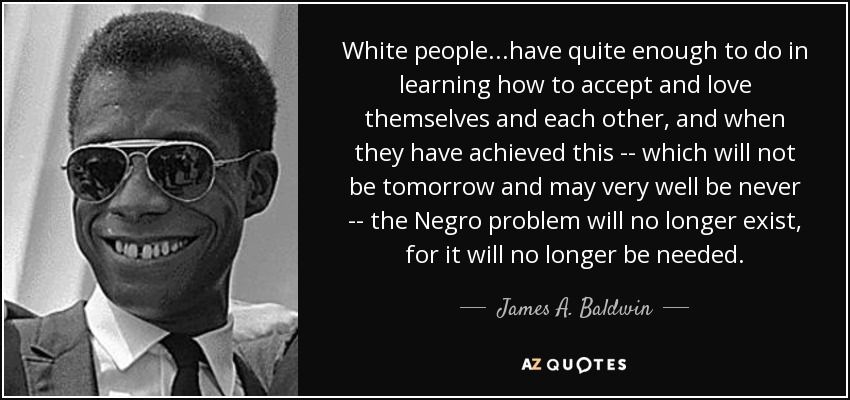
Examples:
저 피자 를 너무 좋아해서 만 보면 미쳐 요 요 요 요 = I love pizza so much that as soon as I see it, I go crazy
좋은 을 위해 저 는 일년 동안 공부 에 요 = to get a good assessment, I studied like crazy for a year
Adverbs and other words:
멀리 = far
Derived from the adjective 멀다.
Note: Usually no affixes are attached to adverbs. However, sometimes 멀리 is accompanied by ~에서, indicating that something comes from afar or happens far away. 멀리에서 is often shortened to "멀리서".
할머니 가 오늘 에서 오셨어 요 요 요 = today, grandmother
멀리서 가 수업 이 걸어 오는 것 이 보였다 보였다 보였다 보였다 보였다 보였다 보였다 보였다 보였다 보였다 보였다 보였다 보였다 보였다 보였다 = I saw how he walked after lessons
Examples:
직장 더 이사 하게 되었어 요 요 = in I ended up moving away from work
저는 멀리 살고 있기 때문에 집까지 걸어가기 힘들어요 = I live far away, so walking home is hard
Examples:
저 와이프 가 그 식품 을 한국 최초 로 수입 요 요
= my wife was the very first who began to import this product in Korea
달 최초 로 착륙 사람 은 neil armstrong 이었어 요
= the very first first A person who has landed on the moon was Nile Armstrong
최초 로 을 나 는 비행기구 만든 사람들 은 라이트 예요 예요 예요 예요
= Wright brothers were the very first built a plane that took off
,초 = the beginning of a period of
, Note: 초 is placed after a word meaning a certain period, meaning the beginning of that very period.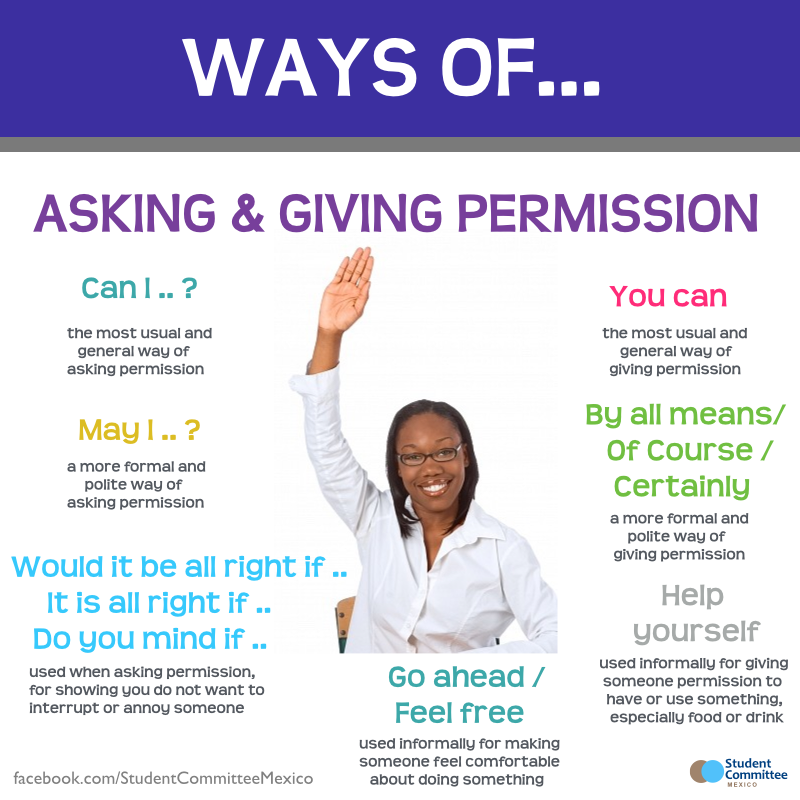
As usual is used:
1 월 초 초 = at the beginning of January
2 월 초 = at the beginning of February
학기 초 = at the beginning of the semester
Examples:
내년 에 오빠가 을 보내 거 예요 예요 = mine brother will send me money at the beginning of next year
이달 초에 친구들과 모임이 많을 거여서 매우 바쁠 것 같아요 = At the beginning of this month I have a lot of meetings with my friends, so I seem to be very busy at the end of this month 모임이
= -to period
Note: 말 is placed after a word meaning a certain period, meaning the end of that same period.
As usual is used:
1 월 말 말 = at the end of January
2 월 말 = at the end of February
학기 말 = at the end of the semester
기말 = The final semester exam
Examples:
6 월 에 에 에 에 에 말 말 말 말 말 말 말 말 말 말 말 말 말 말 말 말 말 말 말 말 말 말 말 돈을 주세요 = Give me money at the end of June
매년 말에 한 해를 마무리하는 행사가 많아요 = At the end of every year there are many events reinforcing negation with negative words
Note: it is difficult to find a translation for this word. It is used in combination with negative words, enhancing their meaning. For example, “not at all”, “absolutely nowhere”, “absolutely with no one”, “never in my life” and the like.
It is used in combination with negative words, enhancing their meaning. For example, “not at all”, “absolutely nowhere”, “absolutely with no one”, “never in my life” and the like.
Examples:
저 결코 그 사람 을 한 번 사랑 한 적 이 요 요 요
= I never loved him
사람들 이 가 거짓말 을 고 생각 하지만 저 결코 을 요 요 요 요
= many thought that I lied that I lied , but I have never lied in my life
To better remember these words, use the Memrise app (available in English).
Introduction
In the previous lesson, you learned how to ask and command in Korean using the imperative mood. In this lesson, you will learn how to use the verb 주다 for the same purpose. You will also learn how the ~아/어 주다 construction works in cases where something is being done just for you. Well, let's get started.
주다 = to give
주다 means to give, to give. You already know perfectly well how this word is used to say that some thing was given or donated. For example:
저는 저의 친구에게 돈을 줬어요 = I gave my friend money phrase, taking the imperative affix from the previous lesson. For example, if you want to be given a book, you can say any of these phrases:
For example, if you want to be given a book, you can say any of these phrases:
그 책을 (나에게) 줘 = Give me this book
more examples:
맥주 병 을 주세요 주세요 = give one bottle of beer, please
저 을 주세요 주세요 = give that spoon, please
밥 을 주세요 주세요 = give more rice, please (literally: a lot of rice)
왼손 만 만 만 만 만 만 만 만 만 만 만 만 만 만 만 만 만 만 만 만 만 만 = Please give me your left hand
6월 말에 돈을 주세요 = Give me money at the end of June
There are 9 in each of the examples above0541 object , which, in fact, they give. However, 주다 can also be used to say that something is being done for someone. Let's talk about this way of using it.
Verb root + ~아/어 주다
Adding ~아/어 주다 to the verb root gives the meaning that the action this verb means is done for someone; some kind of service is implied. For example:
그 선생님은 한국어를 저에게 가르쳤어요 = This teacher taught me Korean
그 선생님은 한국어를 저에게 가르쳐 줬어요 = This teacher taught me Korean just for someone.
A few more examples:
Note that ~(으)시 can be added to ~아/어 주다 if the person doing the action is treated with respect.
엄마가 과자를 내 손바닥에 놓아 주었어
= Mom put candy in my hands
내년 초 에 오빠가 을 보내 줄 예요 예요 예요
= my brother will send me the money at the beginning of the next year
동료 그 일 을 에게 설명 해 요 요
= colleague explained this work
할머니 오늘 멀리 에서 와 요 요 요 요 요 요 요 요 요 주셨어 주셨어 주셨어 주셨어 주셨어 주셨어
= today, Grandmother
경찰관 은 있는 미친 사람 과 상대해 요 요 요
= Police settled the situation with a crazy
제 사람 이 회사 저 를 주고 이 요 요
= Nobody wants dealing with me in this company because I am a foreigner0007 = The teacher opened the nursery for us briefly in the evening
In the previous lesson, you learned how to form imperative sentences using various affixes and grammatical constructions. If you want someone to do something for you, you can first add ~아/어 주다 to the root of the verb, and then add an imperative affix or construction to this 주다.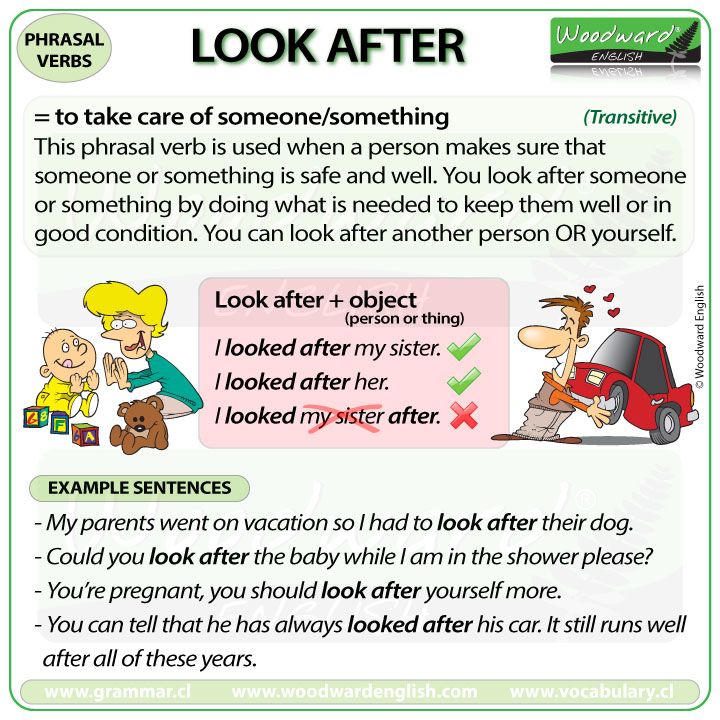
Look at the difference between these two sentences:
빨리 오세요 = Come soon
빨리 와 주세요 = Come soon (to me)
Note that both of them have almost the same meaning. The first is just a request, while the second (due to the presence of 주다 in it) implies that the action that is asked to be done will be performed as if in favor of the speaker.
So ~아/어 주다 basically means something like “do __ for me”. Often we will translate it into Russian as a request for “please”. For example:
점심을 요리해 주세요! = Please cook dinner
이것 을 만들어 주세요 주세요 = please, do this thing
Two examples above mean practically the same as the next two examples, but still have a slightly different meaning:
점심 요리 하세요 하세요 하세요 하세요 하세요 하세요 하세요 하세요 하세요 하세요 하세요 하세요 하세요 하세요 하세요 하세요 하세요 하세요 하세요 하세요 하세요 하세요 하세요 하세요 하세요 하세요 하세요 하세요 하세요 하세요 하세요 하세요 하세요 하세요 하세요 하세요 하세요 하세요 하세요 하세요 하세요 하세요 하세요 하세요 이것 만드세요 만드세요 을 을 을 을 을 을 을 을 을 을 을 을 을 을 을 을 을 을 을 을 을 을 을 을 을 을 을 을 을 = Do this thing
The only difference is that when 주다 is used, the meaning of a request, a service, appears. When 주다 is not in a sentence, it is more perceived as just a command that the person just has to do something. If there is 주다, then this indicates that the person must do something specifically for the speaker.
When 주다 is not in a sentence, it is more perceived as just a command that the person just has to do something. If there is 주다, then this indicates that the person must do something specifically for the speaker.
A few more examples:
그 을 제자리 에 둬 주세요 주세요 주세요 = please put this book in its place
볼 에 로션 을 발라 주세요 주세요 = apply this lotion on my cheeks, please
이것 이마 에 붙여 주세요 = glue it This is on the forehead, please
음성 메시지 남겨 주세요 주세요 주세요 = please leave the voice message
우리 아이 이 유치원 에 받아 주세요 주세요 주세요 = please accept our child in kindergarten
발목 아파서 잠깐 봐 주세요 주세요 = I have an ankle, I have a pain, please see
이 양말을 오른발에 신겨 주세요 = Please put this sock on my right foot
정답을 모르는 사람은 오른손을 올려 주세요 = If you don't know the correct answer, please raise your right hand something is seen or seen. Quite often, it is used in combination with ~아/어 주다, that is, ~아/어 주다 is added to 보이다 - and the result is a word whose meaning is a request that someone be shown something. Both forms are allowed: 보여주다 and 보여 주다 (combined and separate). For example:
Both forms are allowed: 보여주다 and 보여 주다 (combined and separate). For example:
얼굴을 보여주세요 = Please show your face
발가락 을 보여 주세요 주세요 주세요 = show your fingers on your feet, please
해외 무역 건물 이 있는지 보여 주세요 주세요 주세요 = show, please where the foreign trade building is
——————————–
In Korean speech, you can often meet in Korean speech quite an interesting word is 좀. In some cases, it is simply a shortened version of the word "조금". That is, it can replace 조금 in sentences, most commonly in spoken or printed dialogue. For example:
날씨가 좀 추워졌어요 = The weather got a little cooler
저는 좀 더 올라갈 거예요 = I will rise a little higher
이마가 좀 아파요 = My forehead hurts a little
제가 산 주식은 좀 비쌌어요 = The stock I bought is a bit expensive
You can also see 좀 in imperative sentences. When you ask to do something for yourself, 좀 makes the request a little softer. It is quite difficult to translate it, here, rather, intonation is simply added. Examples:
밥 을 많이 주세요 주세요 주세요 = give more rice, please
이것 을 만들어 주세요 주세요 = please, make me this thing
그 책 을 에 좀 주세요 주세요 주세요 주세요 주세요 주세요 주세요 주세요 주세요 주세요 주세요 주세요 주세요 주세요 주세요 주세요 주세요 주세요 주세요 주세요 주세요 주세요 주세요 주세요 주세요 주세요 주세요 주세요 주세요 주세요 주세요 주세요 주세요 주세요 주세요 주세요 주세요 주세요 주세요 주세요 주세요 주세요 주세요 주세요 주세요 주세요 주세요 주세요 주세요 주세요 주세요 주세요 주세요 주세요 주세요 주세요 주세요 주세요 주세요 주세요 주세요 =0003
There are other ways to ask to do something in Korean, and they do not involve building forms of the imperative mood. For example, you might say, "Can you do this for me?" – and the word 좀 may also appear in such sentences. But we'll leave this topic for now and return to it in Lesson 45.
For example, you might say, "Can you do this for me?" – and the word 좀 may also appear in such sentences. But we'll leave this topic for now and return to it in Lesson 45.
————————–
주다 with the negative imperative
As you already know from the previous lesson, you can tell the person not do something with ~지 말다 by adding it to the root of the verb. You can also put ~아/어 주다 after ~지 말다 to get the same meaning. That is, in this case you are asking for something
저를 감옥에 넣지 말아 주세요! = Please don't put me in jail!
자기의 뿌리를 잊지 말아 주세요 = Don't forget your roots
Thank you for..
Here's something to put together. To say “thank you for something”, we need grammar principles from the current lesson, the previous lesson, and Lesson 37.
If you want to say “Thank you for listening”, you need several grammar principles at once.
First, the verb itself: 들어보다 (listen)
We put ~아/어 주다 to 들어보다, we get: 들어봐 주다, this phrase can be taken in different cases:
그 는 제 을 들어봐 줬어 요 요 = he listened to me
제 말 들어봐 주세요 주세요 주세요 = listen to me, please
If we put to 들어봐 주다 주다 affix ~ 아/어서 (because), we will get:
들어 봐 줘서… – which means something like “because they listened.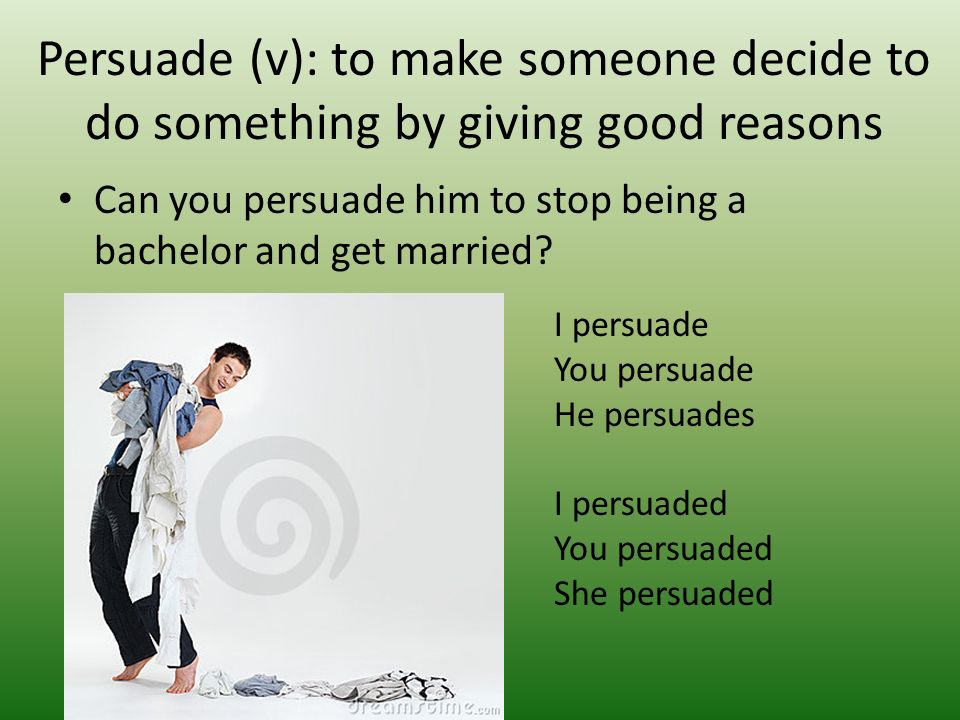 ”
”
Finally, putting "감사하다" (thank you) after ~아/어서 gives us:
들어봐 줘서 감사합니다 = Because we listened, thank you (thanks for listening again)
900 Let's try it again. 1) Take the verb: 요리하다 (cook food)
2) Add ~아/어 주다: 요리해 주다
3) Adding ~아/어서: 요리해 줘서
4) Adding 감사하다 = 요리해 줘서 감사합니다 = Thank you for cooking
It seems quite complicated, because there are so many different grammar principles in one sentence. A few more examples will help to put it all in the head:
열심히 공부 줘서 감사 합니다 합니다 = thank you for zealously
이것 을 가르쳐 줘서 감사 합니다 = thank you for teaching me this
문 열어 줘서 감사 합니다 = thank you for opening the door to me
And a little more complicated: quite often ~아/어 주다 also has ~(으)시 (usually this happens when you thank with a high degree of politeness). For example:
이것 을 가르쳐 주셔서 합니다 합니다 = thank you that they taught me this
(가르치다 + ~ 아/어 주다 + ~ (으) 시 + ~ 아/어서 + 감사 합니다 합니다 합니다 합니다 합니다 합니다 합니다)
 There was hardly any other way to capture everything that we have given in this lesson at an earlier stage. It took me quite a bit to show you grammatical constructions like 아/어서 and ~(으)시 easily enough, and now we're just putting them together in one sentence together with on top of everything we've learned in this lesson.
There was hardly any other way to capture everything that we have given in this lesson at an earlier stage. It took me quite a bit to show you grammatical constructions like 아/어서 and ~(으)시 easily enough, and now we're just putting them together in one sentence together with on top of everything we've learned in this lesson. It's not easy, but we hope you get it right.
Now that you're done with Lesson 41, it's time to test yourself with a mini quiz that will show you how well you've learned from the last 8 lessons.
Do you want to review some material before the test? You can always go back to the last eight lessons!
Ready to move on? Skip ahead to Lessons 42 - 50, or go straight to Lesson 42!
Psychologist's blog: is it worth helping?
- Elena Savinova
- Psychologist
Author of the photo, rawpixel. com
A story about a fishing rod and a fish, or whether and how to help people correctly.
- Psychologist's blog: what is needed for happiness?
- Psychologist's blog: how to get rid of the victim complex?
Poor not because - stupid
From childhood we are taught that we must help the elders, the younger, the weak, those who are less fortunate in life than you.
This is one of the main principles of our social ethics. At the same time, we often hear that giving fish to a hungry person is a disservice. As Confucius said: "If you want to help a person, give him not a fish, but a fishing rod."
They say that what is easily obtained, people do not appreciate, therefore they waste it lightly. Those who regularly receive subsidies quickly get used to them. And instead of looking for a job or studying, they come for a new portion of free money again and again. Become dependent on them.
Become dependent on them.
And there is a lot of moralizing, superiority and snobbery in this judgment, which is said to have been invented by European bourgeois back in the 18th century. What was inherent in that era of the new redistribution of capital.
Image copyright Hanna Morris / Unsplash
Recently, scientists have been conducting a number of studies in developing countries. And according to their results, they found that, for example, in African countries, people, having received grants, spent them overwhelmingly not on vodka or drugs, but on clothes and educating children.
It was also established that they are not poor because they are lazy or stupid. And because of hereditary poverty: parents could not pay for education, I had to go to work early in a low-paid job. And because of the lack of social elevators. Therefore, the Puritan fairy tale about a fishing rod and a fish is irrelevant and unethical.
Sandwich Law
But if we consider this problem not on a planetary scale, but, say, within the framework of some separate team or circle of friends, we notice that there are always people who are fatally unlucky. Their pipes are permanently broken, their heels are broken, they are abandoned by their loved ones, their dubious friends are "bred" for money, their relatives do not understand, and their bosses do not appreciate them. And there are those who are most often asked for help. And not because they are rich or they have enough free time. They just know that they will not refuse.
Their pipes are permanently broken, their heels are broken, they are abandoned by their loved ones, their dubious friends are "bred" for money, their relatives do not understand, and their bosses do not appreciate them. And there are those who are most often asked for help. And not because they are rich or they have enough free time. They just know that they will not refuse.
The reasons for this reliability are different. One elderly woman who visited her sick friends in hospitals all the time, bought them medicines and food, although she herself was very limited in funds, admitted that in this way she felt needed. After all, her only son and his family live far away, they see each other once a year. And she wants to help someone.
image copyrightTom Parsons / Unsplash
Interestingly, when other people tried to thank her, she flatly refused, returned sweets and money. And for some services offered money. So, helping herself, the woman did it not only out of pure empathy and a desire to share. In addition, she felt more powerful and significant than her frail friends. Sympathizing with them, she felt superior and even despised them a little. Therefore, she herself so resolutely and even angrily refused help, not wanting to be in their unacceptable place for her - weak and helpless.
In addition, she felt more powerful and significant than her frail friends. Sympathizing with them, she felt superior and even despised them a little. Therefore, she herself so resolutely and even angrily refused help, not wanting to be in their unacceptable place for her - weak and helpless.
Someone rushes to help, because in this way he earns love and affection for himself. And someone - because this role, given the mild nature, was once imposed on him, and now it is already inconvenient to refuse. Only diplomats don't say "No" , from an excess of goodness in themselves, from those who thus assert themselves, increases their own self-esteem at the expense of the weakness of others. To whom, at such moments, one relates, as one writer said, with "squeamish pity."
That is, such a person does not feel like a hackneyed horse, because he always needs to run somewhere, solve someone's problems. He is not afraid that he will be offended when, instead of taking someone to the airport, he offers to pay for a taxi. And not because there is no time. But simply because he does not want to, because that evening he was going to watch the series.
And not because there is no time. But simply because he does not want to, because that evening he was going to watch the series.
Image copyright Giulia Bertelli / Unsplash
By the way, a sign of complete mental health is that he will also honestly say that he does not want or laziness, not caring that he will be considered callous and selfish.
Or instead of spending half a day fixing someone's broken faucet, just call a plumber. And he admits that he does not understand anything about it. True, after such a glory of this man as an omnipotent crisis manager may fade. But a healthy person without an inferiority complex does not need it.
Respect out of gratitude or love out of compassion?
But, you say, there are people who have a natural need to give, to share - over the edge. Without any benefit. I agree, but such generous souls should remember that sincere friendship with those they help is not worth counting on.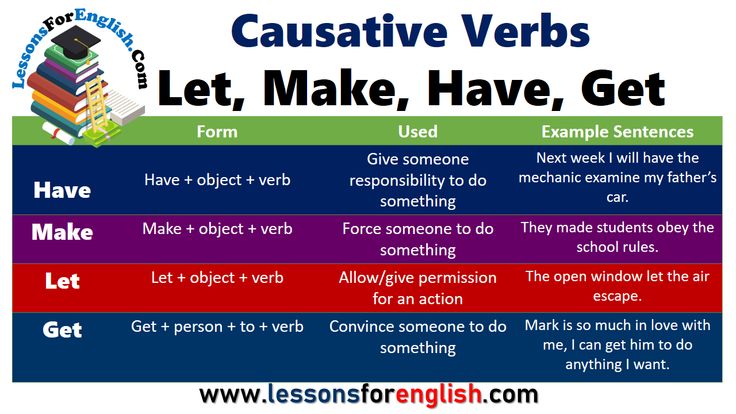
Friendship presupposes a certain parity in relations. When there is an imbalance in a relationship, because one is only giving and the other is only receiving, it becomes a parent-child relationship or an older, stronger relationship with a younger, weaker one.
Image copyright Rémi Walle / Unsplash
By the way, gratitude and the need to show gratitude is one of the most difficult duties. That is why, if you are someone who constantly does good deeds, you probably noticed that those to whom you do them somehow shamefully avoid you. Respect aloof. Respected but not loved.
So if you want real sincere affection, don't attack people with your help. Give them the opportunity to thank you equally.
- Psychologist's blog: where to get motivation?
- Why are we prejudiced against psychotherapists?
If you are the kind of person who thinks you owe everything, remember that you will never be seen as a serious, independent player until you become one.














